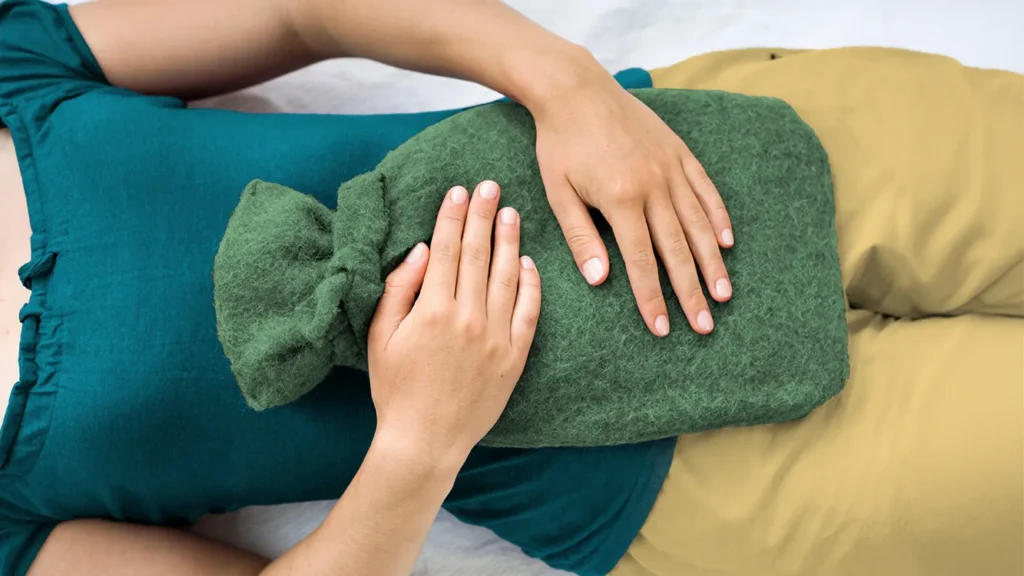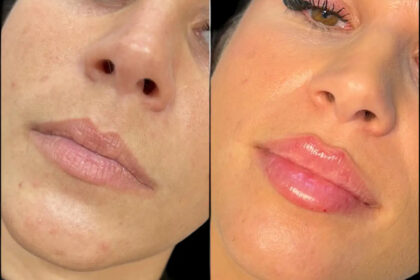Menstrual pain is something that most women experience at some point in their lives. The pain, often called period cramps, can range from mild discomfort to severe pain that affects daily activities. While medications are available, many women prefer to look for home remedies for menstrual pain that are safe, natural, and without side effects. These remedies can help reduce cramps, relax the body, and make the monthly cycle easier to manage.

In this article, we will explore the causes of menstrual pain, its common symptoms, and the most effective home remedies for menstrual pain that can help relieve discomfort. By understanding and using these remedies, women can find relief in a natural way without always depending on painkillers.
Understanding Menstrual Pain
Menstrual pain, also known as dysmenorrhea, happens due to the contraction of the uterus during the menstrual cycle. When the uterus contracts strongly, it reduces blood flow and oxygen supply, which causes pain.
Common symptoms include:
-
Cramping pain in the lower abdomen
-
Pain spreading to the lower back and thighs
-
Headaches or dizziness
-
Nausea and tiredness
-
Mood swings and irritability
While some women may experience only mild discomfort, others face severe cramps that can disrupt their work, studies, or daily activities. This is why finding safe and effective remedies is so important.
Why Choose Natural Remedies?
There are many reasons women prefer natural remedies over medicines for period pain:
-
Fewer side effects: Natural methods are usually safe and gentle.
-
Easily available: Remedies can often be found in the kitchen or at home.
-
Holistic relief: Many remedies not only reduce pain but also improve overall well-being.
-
Cost-effective: Home remedies are affordable and easy to practice regularly.
Effective Home Remedies for Menstrual Pain
Let’s go through some of the most effective and trusted natural ways to relieve menstrual cramps.
1. Applying Heat
One of the simplest and most effective home remedies for menstrual pain is applying heat to the lower abdomen or back. Heat helps relax the muscles of the uterus, increases blood flow, and eases cramping.
How to try this remedy:
-
Use a hot water bottle or heating pad and place it on your stomach.
-
You can also use a warm towel dipped in hot water.
-
A warm bath can also provide overall relaxation and reduce pain.
2. Herbal Teas
Certain herbal teas have natural anti-inflammatory and muscle-relaxing properties that can help reduce period pain.
Popular teas for menstrual pain relief include:
-
Ginger tea: Reduces inflammation and improves blood circulation.
-
Chamomile tea: Acts as a natural relaxant and reduces stress.
-
Peppermint tea: Helps reduce cramps and soothes the digestive system.
-
Cinnamon tea: Contains natural compounds that reduce pain and improve blood flow.
3. Gentle Exercise and Yoga
Although it may feel difficult to move during cramps, light physical activity can actually help. Exercise releases endorphins, which are natural painkillers that improve mood and reduce pain.
Effective exercises and yoga poses for relief:
-
Walking or light stretching
-
Yoga poses like Child’s Pose, Cat-Cow Stretch, and Reclining Twist
-
Breathing exercises to calm the mind and relax the body
4. Staying Hydrated
Drinking enough water is important during your periods. Dehydration can make cramps worse and also lead to bloating.
Tips to stay hydrated:
-
Drink warm water instead of cold water for better relief.
-
Add lemon or ginger to water for extra soothing benefits.
-
Herbal teas and soups also help keep the body hydrated.
5. Eating a Balanced Diet
Diet plays a big role in managing menstrual pain. Eating the right foods can reduce inflammation, relax muscles, and improve overall energy.
Foods that help reduce cramps:
-
Fruits rich in vitamins like bananas, oranges, and berries
-
Vegetables like spinach and kale for iron and magnesium
-
Omega-3 rich foods like flaxseeds, walnuts, and salmon
-
Dark chocolate (in moderation) for magnesium and mood improvement
Foods to avoid during periods:
-
Excess caffeine and sugary drinks
-
Oily, fried, or processed foods
-
Too much salt, as it can cause bloating
6. Essential Oils and Massage
Massaging the lower abdomen with essential oils can improve blood circulation and relax tight muscles.
Best essential oils for period relief:
-
Lavender oil – promotes relaxation and reduces pain
-
Peppermint oil – cools and soothes cramps
-
Clary sage oil – balances hormones and eases discomfort
How to use:
-
Mix a few drops of essential oil with a carrier oil (like coconut oil).
-
Massage gently on the abdomen in circular motions.
7. Adequate Sleep and Rest
Sleep is very important for recovery and pain management. Lack of sleep can increase stress and make cramps feel worse.
Tips for better sleep during periods:
-
Stick to a regular sleep routine.
-
Use comfortable bedding and a warm blanket.
-
Avoid caffeine in the evening.
-
Practice relaxation techniques before bedtime.
8. Managing Stress
Stress can make menstrual pain worse by increasing muscle tension and hormonal imbalance. Finding ways to relax can make a big difference.
Simple stress-relieving activities:
-
Meditation and deep breathing
-
Listening to soothing music
-
Taking a warm bath
-
Spending time in nature
9. Supplements and Vitamins
Certain vitamins and minerals can help reduce cramps naturally. Before starting supplements, it’s always best to consult a doctor.
Helpful supplements include:
-
Magnesium: Relaxes muscles and reduces cramping.
-
Vitamin B1 (Thiamine): Known to ease period pain.
-
Vitamin E: Helps reduce inflammation.
-
Omega-3 fatty acids: Natural anti-inflammatory effect.
10. Acupressure and Home Therapies
Some women find relief by using acupressure points or traditional therapies. Acupressure involves pressing certain points on the body to release tension and improve energy flow.
For example, gently pressing the area between the thumb and index finger, or the point just below the knee, may help ease cramps.
When to See a Doctor
While home remedies are very effective for mild to moderate cramps, sometimes menstrual pain can be a sign of underlying health issues like endometriosis, fibroids, or pelvic infections. You should see a doctor if:
-
Pain is very severe and doesn’t improve with remedies
-
Periods are unusually heavy or irregular
-
Cramps are accompanied by fever, nausea, or vomiting
-
Pain affects your daily routine every month
Conclusion
Menstrual pain is a common problem, but it doesn’t have to control your life. With simple and natural methods such as heat therapy, herbal teas, gentle yoga, hydration, and stress management, you can ease cramps effectively at home. These home remedies for menstrual pain are safe, affordable, and easy to follow in daily life.
However, if the pain becomes unbearable or happens regularly in a severe way, consulting a healthcare professional is important. At Dispur Polyclinic and Hospitals Pvt Ltd, women receive expert care and guidance for menstrual health and overall well-being. A healthy lifestyle, combined with timely medical advice, can make periods more manageable and less painful.

